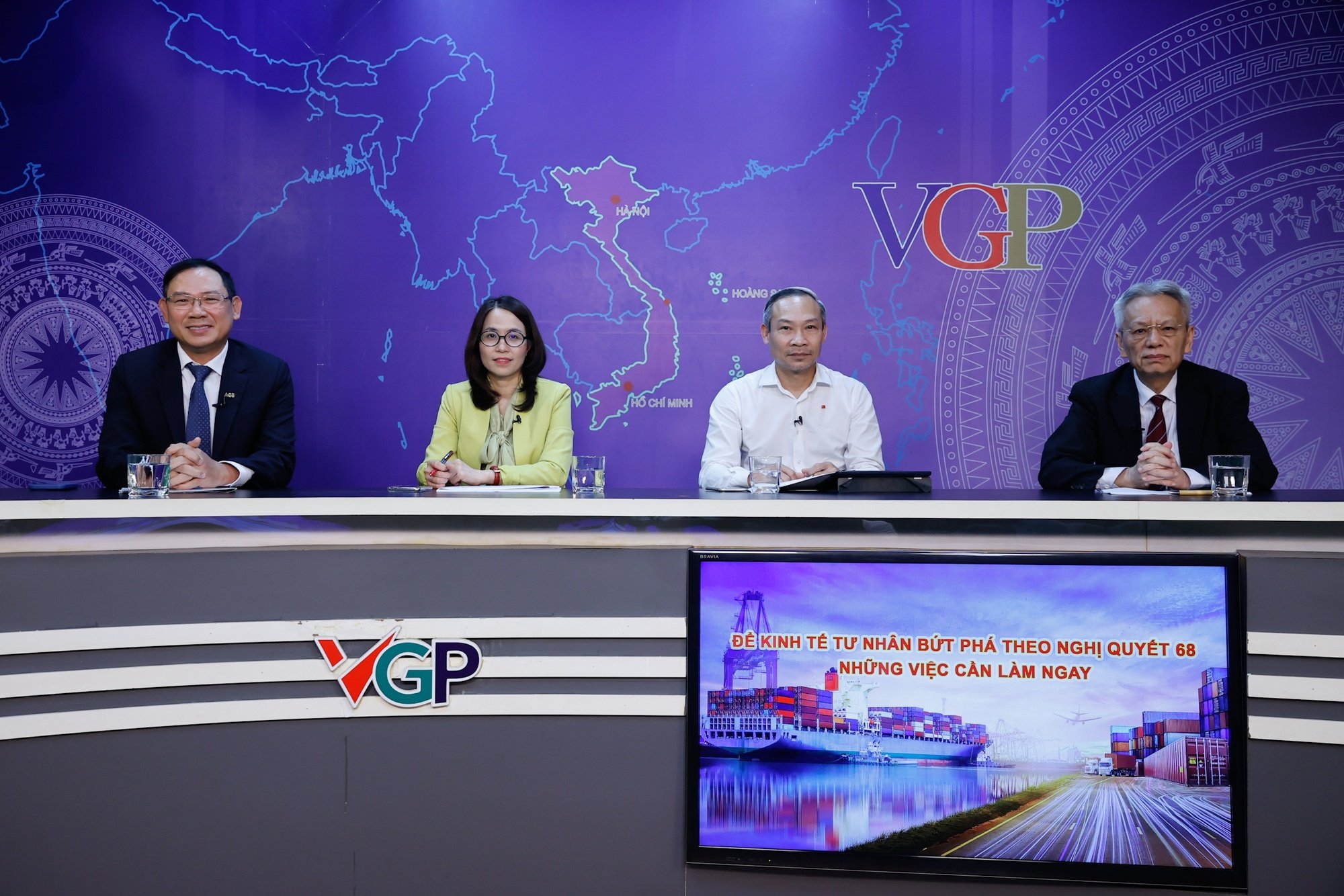 |
| Seminar "For the private economy to break through according to Resolution 68 - Things to do immediately" - Photo: VGP/Nhat Bac |
On May 4, 2025, General Secretary To Lam signed and issued Resolution No. 68-NQ/TW of the Politburo on private economic development. Immediately afterwards, the Prime Minister chaired two urgent meetings on May 7 and 8 to prepare a draft resolution to submit to the National Assembly, with the expectation of passing it at the ongoing 9th Session.
In order to deeply analyze new points, major ideas and propose practical implementation solutions, the Government Electronic Information Portal organized a seminar "For the private economy to break through according to Resolution 68 - Things to do immediately" on the afternoon of May 9, with the participation of economic experts, leaders of ministries, branches, National Assembly deputies and business representatives.
Institutional turning point, opening up thinking
At the seminar, National Assembly delegate and economic expert Phan Duc Hieu said that the birth of Resolution 68 is a big step forward in development thinking. According to him, if implemented effectively, this resolution will become "the third turning point and breakthrough in the history of private economic sector development".
Compared to the two previous breakthroughs – the first was the recognition of the private economic sector (1988–1990), the second was the period of administrative procedure reform and market opening (1999–2000) – Mr. Hieu affirmed that this time, it did not stop at procedural reform, but took a step forward in terms of qualitative change.
 |
| Mr. Phan Duc Hieu: If Resolution 68 is well implemented, it could be the third turning point and breakthrough in the history of private economic sector development - Photo: VGP/Nhat Bac |
He emphasized three pillars of reform in the resolution: First, continuing to facilitate business entry into the market, especially removing administrative barriers in operations. Second, increasing the level of protection for the private economic sector, reducing legal risks by not criminalizing economic relations. Third, unlocking resources - from land, production premises to capital and human resources - through improving mechanisms such as dispute resolution and handling public debt for businesses.
Dr. Nguyen Si Dung, the moderator of the discussion, also emphasized the importance of building trust and legal security for the private sector. He gave an example: the choice not to apply retroactive sanctions in handling violations clearly demonstrates the effort to build a transparent, stable and fair business environment. According to him, building trust for businesses is the decisive factor for this sector to develop sustainably.
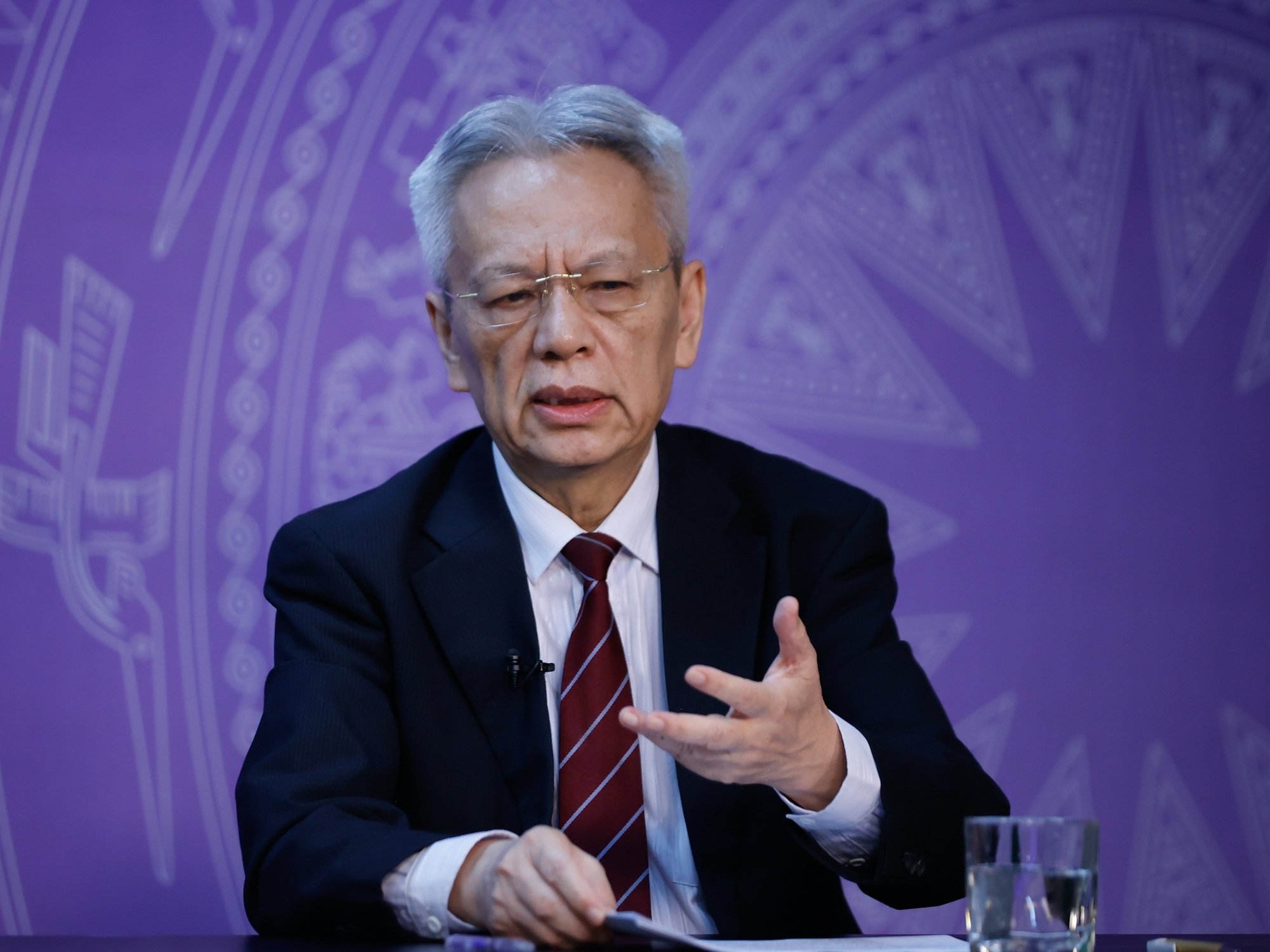 |
| Dr. Nguyen Si Dung moderated the discussion - Photo: VGP/Nhat Bac |
Private Enterprise: From Expectation to Responsibility
As one of the representatives of the business community, Mr. Tu Tien Phat - General Director of ACB Bank - shared: "Entrepreneurs are soldiers on the economic front" is not just a metaphor, but a reality of a turbulent era. He affirmed that private enterprises have long been looking forward to this Resolution and are now accepting it as an honor accompanied by great responsibility.
 |
| Mr. Tu Tien Phat: We, as well as Vietnamese private enterprises, have been looking forward to this Resolution for a long time - Photo: VGP/Nhat Bac |
From the perspective of a financial institution serving nearly 300,000 small and medium enterprises and more than 800,000 business households, Mr. Phat likened the institution to a “battlefield”, enterprises are the ones on the front line, and banks, like ACB, are the “financial rear” that need to ensure cheap and convenient capital sources, helping businesses feel secure in developing.
He also expressed his expectation for the innovation of Resolution 68, considering the private economic sector as of utmost importance. In the context of increasingly fierce global competition, institutional policies are the fulcrum for Vietnamese enterprises not only to survive but also to grow strongly, innovate and improve competitiveness.
Dr. Nguyen Si Dung agreed, emphasizing that private enterprises today have to shoulder risks from many sides – from international tax policies to customer reactions on social networks. Therefore, recognition and support from the state at this time is not only necessary but also has a long-term strategic significance.
Institutionalization for Action – What to Do Now
From the perspective of state management agencies, Ms. Bui Thu Thuy - Deputy Director of the Department of Private Enterprise and Collective Economy Development, Ministry of Finance - considered Resolution 68 to be a great step forward in terms of institutions. She said that over the past years, although policies to support businesses have been issued, the gap between the spirit of the resolution and practical implementation is still far.
Specifically, Ms. Thuy cited the example of “not criminalizing economic relations” – a principle that was affirmed in Resolution 10 of the 2017 Central Committee, but has so far encountered many difficulties in implementation. According to her, the breakthrough this time lies in the more specific and drastic nature of the resolution, with a clear requirement: in cases that are unclear, “absolutely not criminalize”.
 |
| Ms. Bui Thu Thuy: A very important point is trust - Photo: VGP/Nhat Bac |
She also placed special emphasis on reforming business conditions, calling it an “ice wall” that has existed for many years. Now, the resolution requires all business conditions to be published, and does not allow ministries and sectors to set additional conditions, except in cases related to national defense, security and public health. “This is a real breakthrough,” she affirmed.
Another important content is the requirement to ensure equality between economic sectors in accessing opportunities and resources. Previously, state-owned enterprises were often given credit, while private enterprises had to mortgage to borrow capital. This resolution clearly establishes that if there is discrimination, the person implementing it must be held responsible.
Ms. Thuy further explained that the reason the Politburo emphasized the central, urgent and strategic role of the private economy is because this sector is contributing more than 50% of GDP, higher than the FDI sector and state-owned enterprises combined. In the context of the volatile world economy, FDI enterprises must be more cautious, state-owned enterprises are restructuring, the domestic private sector is the main driving force.
However, she also frankly pointed out that although the number of enterprises has increased, most of them are still small, have low competitiveness, and rarely participate in the global value chain. Therefore, the orientation of developing the private economy "fast - sustainable - effective" is not only an immediate task, but also a long-term strategy.
Aspiration for Development – The Foundation for a New Era
The discussion concluded with a strong consensus from the speakers that Resolution 68 not only created a policy push, but also laid the foundation for a new era of development – an era of innovation, integration and prosperity, in which the private economic sector plays a central role.
Dr. Nguyen Si Dung said that developed countries such as Japan, South Korea and China all rely on the private sector as the main driving force, with the direction and guidance of the state. If Vietnam cannot take advantage of the strength of private enterprises, it will be very difficult to achieve the goal of becoming a powerful developed country.
Unlocking resources, reforming institutions, and building trust – that is not only the message of Resolution 68, but also a call to action for the entire political system, the business community, and the people. Once the great idea is clear, what is needed now is the determination to implement it substantially and consistently, to bring the resolution into life – with specific policies, synchronous actions, and a firm belief in the strength of Vietnamese enterprises.Source: https://thoibaonganhang.vn/nghi-quyet-68-dot-pha-the-che-cho-kinh-te-tu-nhan-niem-tin-hanh-dong-va-khat-vong-but-pha-163960.html






![[Photo] Prime Minister Pham Minh Chinh chairs Government Standing Committee meeting on Gia Binh airport project](https://vphoto.vietnam.vn/thumb/1200x675/vietnam/resource/IMAGE/2025/5/10/6d3bef55258d417b9bca53fbefd4aeee)
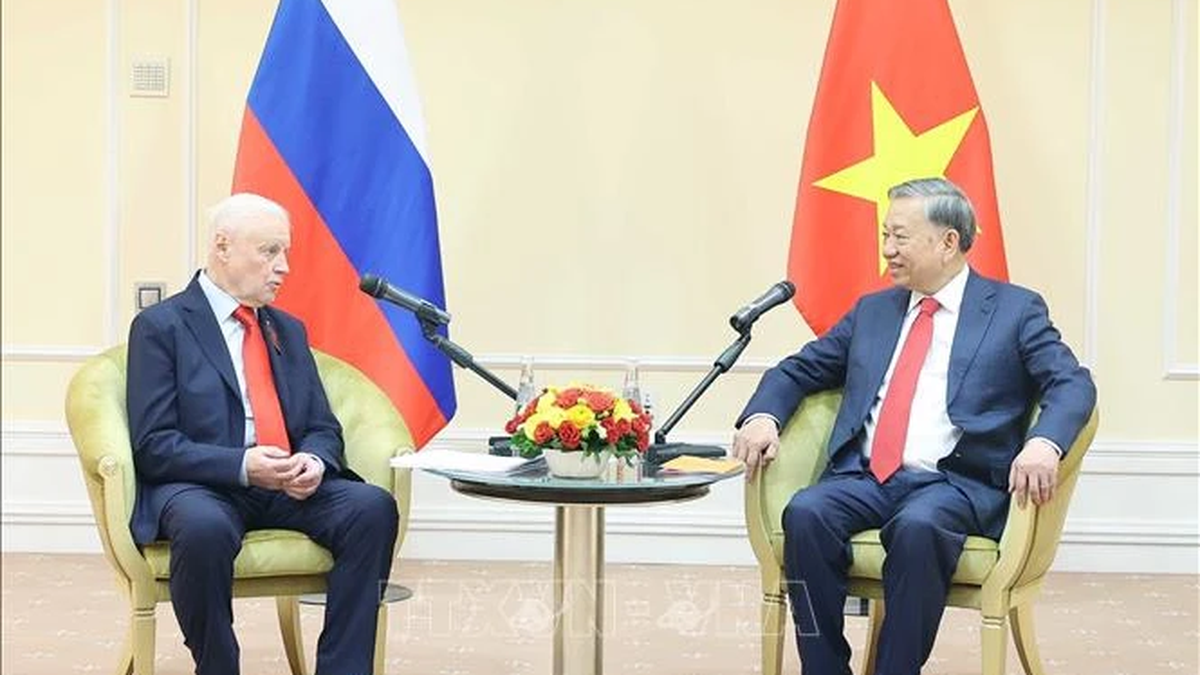


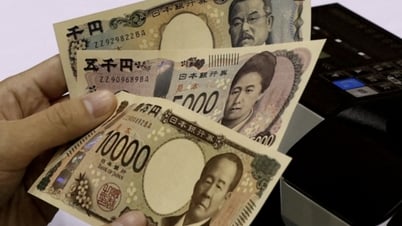




































































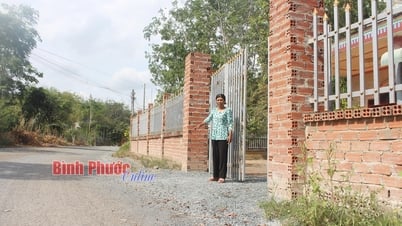












Comment (0)